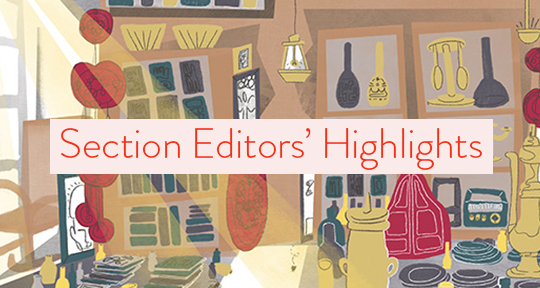This week, our editors from Argentina, Sweden, and Palestine have plenty to report. In Argentina, readers have paid homage to writer Rodolfo Fogwill on the tenth anniversary of his death, and a new imprint has been translating classics of Argentine noir into Greek; in Sweden, the annual Göteborg Book Fair is taking place online; and in Palestine, Adania Shibli’s Minor Detail has been nominated for a US National Book Award, whilst a new exhibition at the Palestinian museum has hosted a series of authors, including Mahmoud Shukair. Read on to find out more!
Allison Braden, Editor-at-Large, reporting from Argentina
Ten years ago, Argentina’s literary world was stunned at the news of Rodolfo Fogwill’s death. The writer, whom The Guardian called “loud-mouthed, provocative, and downright rude,” loomed large in Argentine letters, by dint of both his literary accomplishments and outsize personality. (His anti-war novel Malvinas Requiem was written in one cocaine- and whiskey-fueled week, and remains the only novel of his translated into English.) Last month, the country commemorated the decade since Fogwill’s death with a slew of virtual tributes: The National Library of Argentina’s YouTube channel featured a playlist of interviews and other audiovisual artifacts of his career; his publisher, Alfaguara, hosted Fogwill Week on their social media channels; and readers and writers paid homage to a writer whose works have remade the literary landscape. The enfant terrible lives on.
In Greece, classics of Argentine noir are finding new life with Carnívora, a new imprint dedicated to translating and publishing Latin American crime fiction in Greek. “In Argentina, literary talent abounds, and we could say that the reading public in Greece has had a kind of literary love for Argentina since the Latin American boom,” Carnívora editor and translator Aspasía Kampyli told La Nación this week. “That’s why it’s no coincidence that the first two writers we published, Guillermo Orsi and Raúl Argemí, have been Argentine, and the reception from critics and Greek readers has been especially warm.” In less than a year since its launch, the imprint has also won design awards for its logo and book covers. You can’t judge a book by its cover, but Carnívora’s positive coverage bodes well for Latin American noir in Greece.
More recent works are also getting buzz in foreign markets. Asymptote’s own Sarah Moses translated Agustina Bazterrica’s novel about a cannibalistic future for the human race, Tender Is the Flesh, for Pushkin Press (UK) and the Scribner (US). The book, recently reviewed in The New York Times, is available now in the US. Though it’s not traditional noir, Bazterrica’s book seems to fit Carnívora’s description of the genre: “crimes wrought by history or tragedy.” Perhaps we’ll soon see the novel in Greek. READ MORE…




